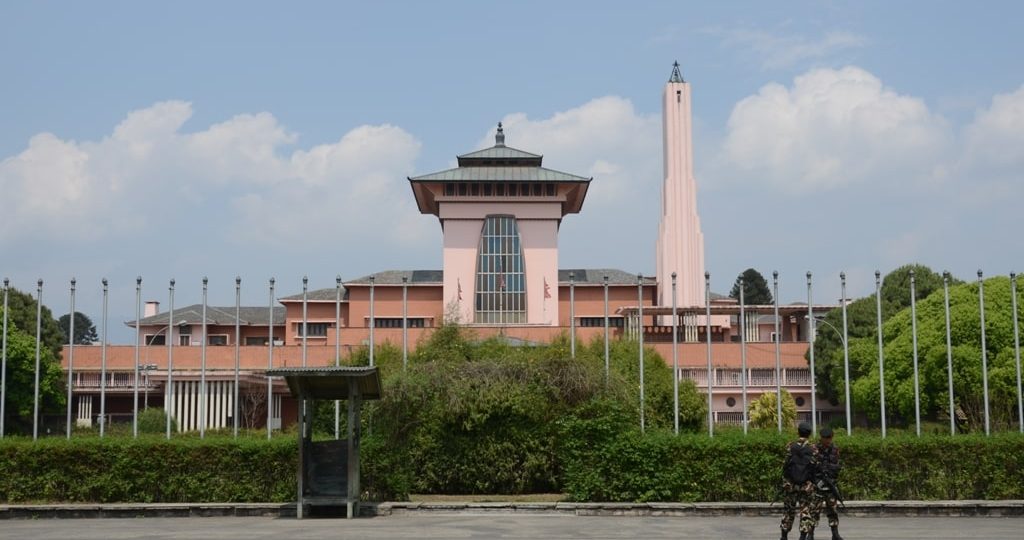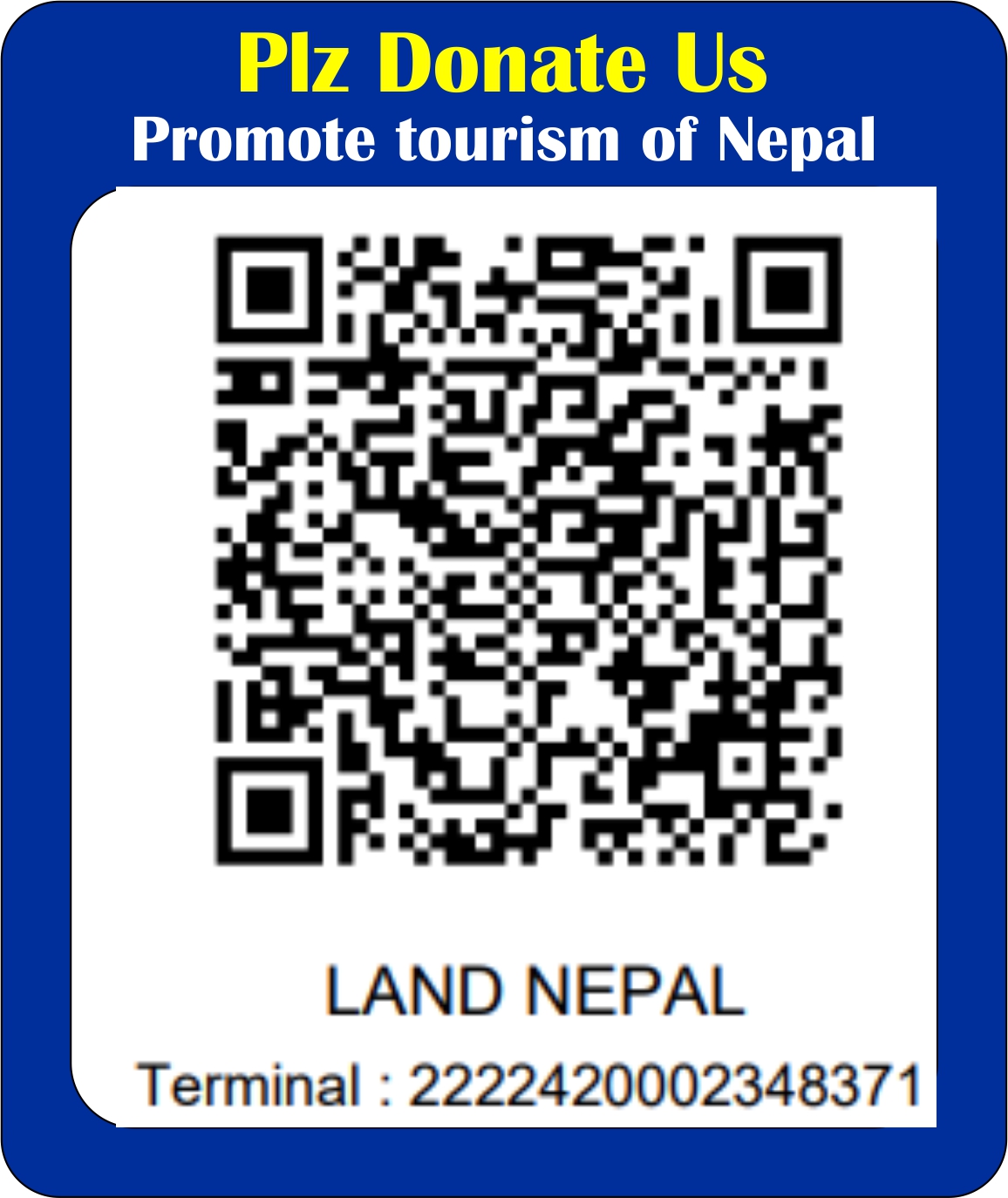Narayanhiti Palace, which for a long time was the main residence and workplace of the King of the Kingdom of Nepal, is in Kathmandu. The palace complex is located on the east side of Keshar Mahal, near Thamel. The construction of the present Narayanhiti palace was carried out by King Mahendra in 1963 BS.
Narayanhiti Palace, which is the royal palace for the last king of Nepal, has been the settlement area of the Kings of Nepal for around 135 years. Girija Prasad Koirala, then Prime Minister of Nepal, ordered for the erection of the Narayanhiti Palace into the National Museum on Asar 1, 2065 BS. Similarly, after 8 months of the construction of the museum, it was opened to the public for observation by Prime Minister Pushpa Kamal Dahal (Prachanda). This palace covers an area of 318 ropanis whereas the museum covers an area of 753 ropanis.
History
Earlier it was mentioned that there was a huge building of Kazi Dhokal Singh Basnyat at the Narayanhiti Palace. The palace was built by Kazi Dhaukal Singh Basnyat, the youngest son of Chief of Army Staff Shivaram Singh Basnyat. The palace was invaded and given by King Ran Bahadur Shah to Chautaria Fateh Jung Shah.
Narayanhiti Palace was the residence of Chautaria Fateh Jung Shah until the Kot Festival. During the Kot Festival, Prime Minister Chautaria Fateh Jung Shah was slaughtered by Jung Bahadur Rana and the palace was given to Ranoddeep Singh Bahadur Rana. After the assassination of Shri Teen Ranoddeep Singh by Shamsher family in the festival of 1942 BS, the palace came in the name of Bir Shamsher. After the marriage of the two daughters of Shri 3 Vir Shamsher to King Prithvi Vir Bikram, Shri 3 Vir Shamsher gave Narayanhiti Palace as dowry to his daughters.
After this, Prithvi Vir Bikram Shah, in the name of security, was brought to the northern face of the Narayanhiti Palace by Ranoddeep Singh Bahadur Rana. During this time, the palace was converted into the Royal Palace. Before its conversion, all the kings from the Shah dynasty including Prithvinarayan Shah used to live in Hanuman Dhoka Palace, Basantapur.
The palace was rebuilt in 2026 on a map by American architect Benjamin Polk. Benjamin Polk was a B.Sc and the director of Chatterjee & Polk, the largest architectural company in Calcutta. Under the assistance of the US government, he was involved in the establishment of various building projects in Nepal. Many members of the royal family including Tribhuvan, Mahendra, Birendra, Dipendra, and Gyanendra were born in Narayanhiti Palace.
Rooms in Narayanhiti Palace
There are a total of 52 meeting rooms in Narayanhiti Durbar. Among all of them, only 19 rooms were opened to the public by 2068 BS.
Major Attraction of Narayanhiti Palace
- Kaski Room
After entering through a very high entrance named Gaurishankar located at the main facade of the palace, one reaches the Kaski meeting place. The Kaski meeting included important ceremonies such as welcoming foreign heads of state on a state visit to Nepal, swearing in ceremonies of prime ministers, heads of constitutional organs, and conferring certificates of office by ambassadors to the former king.
- Tanahu Room
Right in front of the Kaski meeting, after climbing a curved ladder with a dark red carpet, you reach the Tanahu meeting. There is a huge glass window just above the ladder.
- Gurkha Room
In the Gurkha meeting room, it was announced that Yuvaraj had reached old age. King Birendra had proclaimed the constitution of 2047 BS sitting on the throne in the same chamber.
- Myagdi Room
The heads of the constitutional organs and ambassadors were given refreshments in the Myagdi Room and
- Parbat Room
Various signing ceremonies were held in the Parbat Room.
- Rukum Room
The Rukum Room was used as a waiting room by dignitaries visiting foreign heads of state.
- Rolpa Room
The Rolpa Room was used as a meeting place. In the corridor from Rolpa Room to Baitadi Room, pictures taken by the then King Virendra and Queen Aishwarya with foreign heads of state who have spent the night at the palace are hung.
- Dailekh, Baitadi, and Achham Rooms
The foreign president used to sleep on a grand bed in the Dailekh room, while his wife used to sleep in the Baitadi room and close relatives in the Achham room.
- Bajura & Jumla Rooms
The Bajura Room was arranged for the foreign chiefs to dine, and they rested after eating in the Jumla Room.
- Dolpa Room
The Dolpa Room was used as a secret room for other members of the royal family to visit during special events at the Gorkha meeting.
- Mugu Room
The materials used by King Tribhuvan are kept in the Mugu Room.
- Lamjung & Gulmi Rooms
Dinner was held in the Lamjung Room, while the Gulmi Room was the former king’s private office.
- Dhading & Dhankuta Rooms
The Dhading chamber was the king’s resting room, while the Dhankuta chamber was used as the king’s bed.
- Dhanusha Room
The Dhanusha room was used as a place to receive the tika on the day of Vijayadashami. There is a group photo of the members of the royal family in that room on 4 Bhadra, 2055 and 10 Magh, 2059. All members had signed under the photo.
- Tribhuvan House
The Tribhuvan House is another attraction that is currently open. The palace was the residence of King Tribhuvan where the Durbar massacre took place on Jestha 19, 2058. In that incident, King Birendra and his entire family, including Prince Dhirendra Shah, were killed. In 2061, the building was demolished. The foundation of the building is now paved with bricks. The exact spots are mentioned where Virendra, Aishwarya, and Dipendra fell for the bullet.
- Fountain Garden
The fountain garden just behind the Narayanhiti palace is another attraction. That garden was made by Tribhuvan. A small water tank has been built in the middle of the garden. There are revolving and round houses. At the first South Asian Conference in Nepal, a banquet was organized in the same garden in honor of foreign heads of state. Gyanendra Shah used to organize an afternoon party in the garden on a special festival.
-By: Kusum Kharel for Land Nepal




